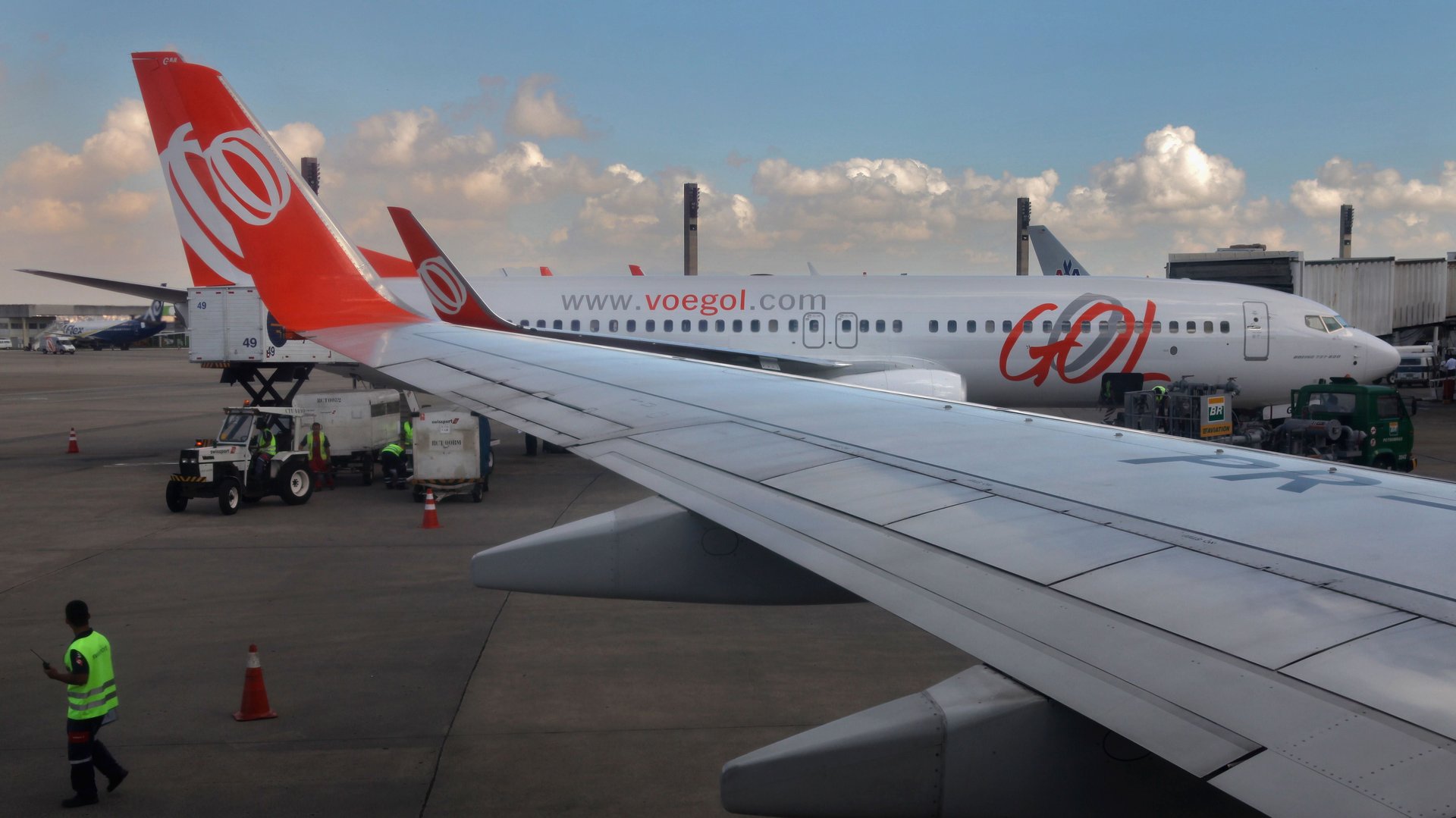How Brazil is making flying more sustainable
When Brazilian airline GOL announced a deal yesterday to buy aviation biofuel from California company Amyris, it was just the latest move by the South American country to green up its aviation industry. And that, by default, could make flying more sustainable for everyone as Brazil helps jumpstart the nascent market for green jet fuel.


When Brazilian airline GOL announced a deal yesterday to buy aviation biofuel from California company Amyris, it was just the latest move by the South American country to green up its aviation industry. And that, by default, could make flying more sustainable for everyone as Brazil helps jumpstart the nascent market for green jet fuel.
Amyris, for instance, makes genetically engineered yeast that digests sugarcane syrup and excretes a renewable version of farnesene, an industrial hydrocarbon used in everything from cosmetics and lubricants to diesel and aviation fuel. Sugarcane, of course, is a commodity that Brazil possesses in abundance, and Amyris in 2011 opened a factory in São Paulo to produce its renewable farnescene, which it calls Biofene.
While burning Amyris’s aviation biofuel emits greenhouse gases, total emissions are 80% lower than conventional jet fuel as most of that carbon had already been absorbed by the sugarcane as it grew. The deal with GOL does not specify how much biofuel the airline will buy but Amyris spokesman Joel Velasco told Quartz that GOL aims to use enough of the green jet fuel to operate 200 flights during the 2014 World Cup. “That’s something we can produce with our existing plant,” he said in an email. (Amyris also has a partnership with French energy conglomerate Total, and the companies produced an aviation biofuel that powered a demonstration flight by an Airbus jetliner at the Paris Air Show in June.)
It would be easy to write off Brazil’s interest in aviation biofuel as just another market for sugarcane, one of its biggest exports. But the country has also struck deals to produce aviation biofuel derived from jatropha, a drought-resistant bush whose fruit bears oil-filled seeds that can be refined into diesel. In 2011, a consortium called JETBIO signed an agreement with San Diego’s SG Biofuels to plant 75,000 acres of jatropha in Brazil. The consortium, which includes Airbus, BP, Brazilian airline TAM and the Inter-American Development Bank, aims to develop new sources of renewable aviation fuel.
Why? The European Union, Australia and other countries are imposing emissions limits and carbon taxes on airlines that take off and land with in their territories. While aviation carbon emissions account for a small percentage of global greenhouse gas emissions, they are growing fast and are expected to increase between 300% and 700% by 2050. As the European Commission points, a person flying from London to New York is responsible for emitting as much carbon as from heating their home for a year.
That has airlines scrambling to find low-carbon alternatives to conventional jet fuel and over the past several years nearly every major carrier has flown test flights powered by everything used cooking oil to algae.